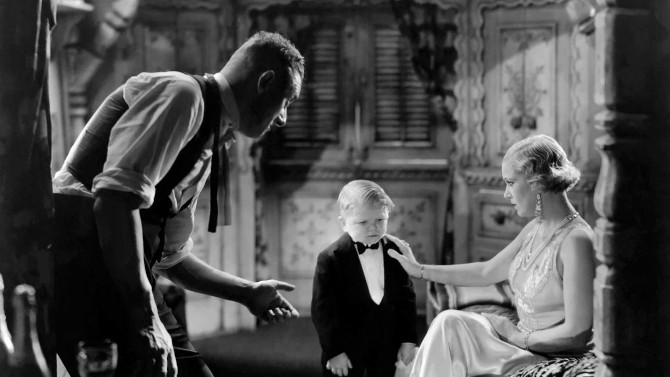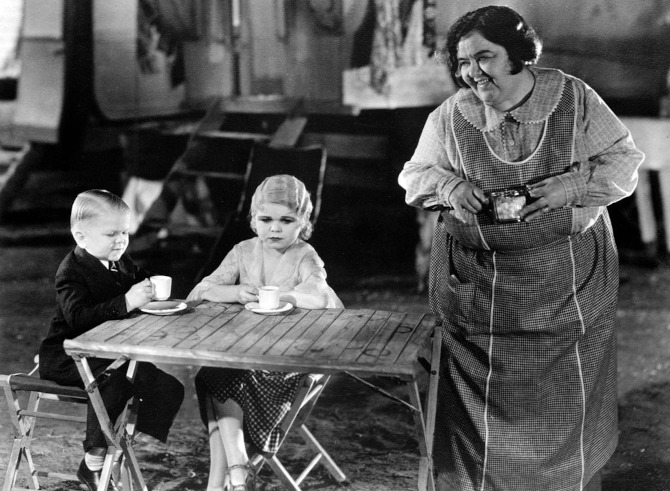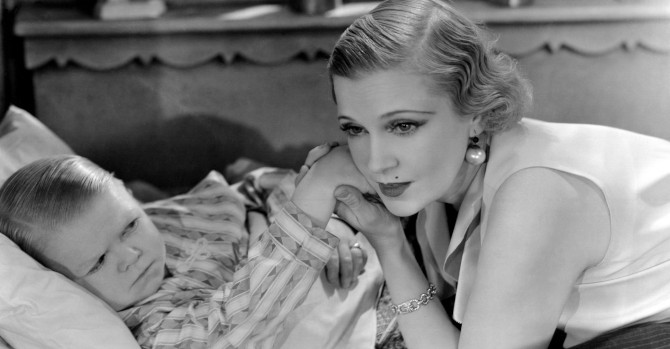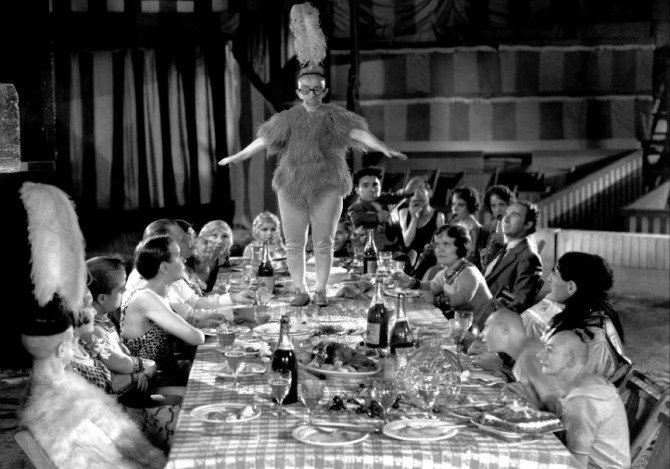One of the most infamous horror films of all-time, 1932’s Freaks can arguably be called the most daunting watch of the pre-Code era. Transporting the viewer inside the private part of the very public lives of a Great Depression era traveling circus, the film is populated by only a few professional actors, most of the cast featuring sideshow performers with real disabilities.
So controversial was it that negative test screenings forced the MGM studio execs to edit out some of its more disturbing elements, chopping twenty-six minutes of its (at that time) ninety minute runtime – the original cut has sadly been lost. Further adding to its dark mystique, the picture’s director, Tod Browning, fresh off of the success of his gargantuan hit of the previous year, Dracula, was able to choose the project he wanted (and he, in retrospect, made the wrong choice with this unusual horror drama with romantic tinges). So repulsed were some critics, sections of America (and the world), as well as Hollywood elites, that it brought forth the end of his career at the prime age of fifty-two.
Now almost ninety years on, Freaks’ controversial aura is still as strong as ever. Continuing to populate most expert’s lists of ‘scariest films of all-time’, it is likely one of the least seen movies on any of those compilations. A tale of the poor treatment of the world’s outcasts, it definitely features horror elements, but it is more-so a tragic story of love and loss, as well as an analysis on the mistreatment of those downtrodden that we either forget, or believe are less important than us.
Introduced in a most mysterious way, we are drawn into the film the same way we would be at a circus, The Barker (Murray Kinnell) telling his tall tales, including the most horrifying of all – the one of a yet unseen ‘freak’ who has a past not fully known. . . one that will both shock and surprise.
It is after this that we are introduced to the traveling community, a group of circus performers who in many ways can be divided into two cultural classes. . . the so called ‘normal’ talent (the trapeze artists, strong man, and other such positions) and the ‘freak show’ attractions. One of the former, Cleopatra (Olga Baclanova), is the belle of the ball, the stunning trapeze artist who everyone is drawn to, including her lover, strongman Hercules (Henry Victor), as well as German little person Hans (Harry Earles). . . much to the chagrin of his loving fiancée Frieda (Earles’ real life sister Daisy – hence why their romance is under-explored in a pre-Code movie).
So charmed is he by this beauty that he frequents the artist’s caravan, bringing her the money she always seems to desire – making her a ‘Minnie the Moocher’ exemplified. Though this is the main narrative, other romances blossom: conjoined twins Daisy and Violet Hilton (their real names), are hot and heavy, the former with her new husband, a stutterer clown named Roscoe (Roscoe Ates), the latter getting into a new relationship with the circus’s owner; while the Bearded Lady (Olga Roderick) and the Human Skeleton (Peter Robinson) are expecting their first child in just a few short days.
And though Browning does a quality job immersing us within this rarely seen behind-the-scenes world, giving us a bird’s eye view into the tight-knit yet divided group of people struggling through life, he never loses sight of the main story. Cleopatra, learning that Hans is in line to inherit a massive fortune, formulates her plan. . . a black widow scheme in which she will marry, and then kill the smitten little guy.
More of an atmospheric piece until the intense climax, Browning takes his time building each scene (every moment adding a cold, eerie, and oft melancholic mood) as our ‘freaks’, who many might think would simply be placed in the picture as a way to draw in a curious audience expecting a typical exploitation flick, would be quite wrong. . . as they come off as powerfully sympathetic. It really is a trendsetting moment – a rare film that, despite its horror elements, had something important to say: that these are people with the same emotions and feelings as everyone else (something not often thought at the time – when touring ‘freak shows’ were still quite prevalent). We are drawn to poor Hans’ predicament, the wedding a difficult moment to watch, for his shame is another sharp dagger into the back of a person who desperately wants those things everyone longs for – love, affection, and the seemingly simple feeling of fitting in. It is a moment that turns from welcoming (Cleopatra met with open arms), only for her to crush his big heart a few seconds later. . . but this is not the end.
A film that intriguingly flips the script (fantastically making the beautiful grotesque and vice versa – a very avant-garde concept that still impresses), Freaks, despite its long controversy, is a must see. A voyeuristic vision of a time long since gone, it still shocks and awes, but at the same time, its powerful sense of emotion, community, and pain (of not fitting in) is equally moving. So, don’t duck and cover from this horror classic, it is a feature worth freaking out over.




